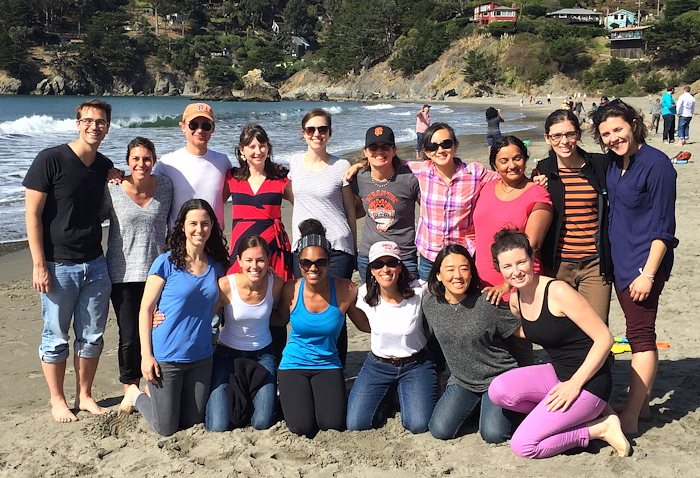Program Objectives
The three-year residency program fulfills requirements for internal medicine board eligibility. The major goal of the UCSF Primary Care/General Internal Medicine Residency Program is to train highly competent, socially responsible, and skilled general internists who will become leaders in the field of general medicine.
Toward this end, the program has a number of specific objectives:
- To provide an ambulatory care experience that has patient and educational continuity throughout the three years of training and provides increasing breadth and intensity of experience in the primary care setting. Residents learn the problems and decision-making processes involved in the long-term care of patients and gain an understanding of how illnesses are integrated into the life patterns of patients. Residents also acquire an understanding of the natural history of disease and the appropriate timing of interventions.
- To provide training toward a high degree of competence in the management of severely ill hospitalized patients. The resident should understand the role and contribution of various specialists, subspecialists, and interdisciplinary clinicians in the acute care process, and learn to provide continuing care of patients hospitalized from their ambulatory practice.
- To acquire the specialty and subspecialty skills necessary for the practice of internal medicine including skills in cardiology, pulmonology, infectious diseases, hematology, oncology, endocrinology, gastroenterology, rheumatology, neurology, nutrition, ethics, orthopedics, gynecology, dermatology, urology, otolaryngology, occupational medicine and other medical and surgical subspecialties.
- To develop skills in interviewing and patient communication in order to gather data effectively, build effective therapeutic relationships, and to understand illness in the context of patients' life patterns. Residents also develop skills in areas of counseling, such as behavior change, stress reduction, marital relationships, sexuality, health education, interpersonal conflicts, aging and daily emotional problems.
- To learn to function effectively as the internist member of a primary health care team, working with other physicians, psychologists, nurse practitioners, pharmacists, social workers, dieticians and physical therapists. Residents become familiar with social and community health resources, and be able to utilize them effectively for the care of patients.
- To learn the skills needed for modern medical practice, including use of diagnostic tests and procedures, cost effective approaches to problem solving, the use of office-based preventive services, critical assessment of the medical literature, the application of ethical principles in daily practice, principles of chronic disease management, skills in quality improvement, and the role of generalist physicians in managed care and community-based settings.
- To promote equity, diversity and social justice in healthcare.

